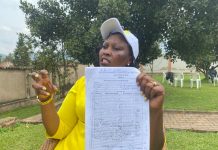By Sarah Mawerere
Local debates on cooking fuels amid energy transitions and climate change are being carried on in East Africa.
This comes in the wake when Global climate agendas mainly shaped by actors – states, companies and NGOs – in the global North in interaction with only the biggest non-Western powers; put pressure on state actors in countries like Uganda and Tanzania to adopt policies in accordance.
This increases risks that such top down injected changes overlook the complex dynamics around charcoal and its role in local life: the social and political economy of livelihoods, gender relations, informal economies, identity relations and private sector growth (Okurut 2020; Mabele 2019).
Charcoal is central to the debates being that charcoal remains the main cooking fuel for millions of urban and peri-urban households, yet firewood is predominantly used in the rural settings.
Charcoal and firewood supply chains support livelihoods; sudden bans or pricing shifts without alternatives can harm people’s incomes and cause social friction.
According to the research conducted by Nabukalu & Gieré 2019, charcoal accounts for 92% of Uganda’s local energy consumption, while 90% of Tanzania households use wood energy, charcoal included as main source of energy (Doggart et al. 2020).
In both Uganda and Tanzania, charcoal policies are contradictory indicating negative effects like deforestation and emissions through fuel switching or greening of the charcoal value chain.
When the transitions take place moving from biomass to clean energy both men and women have different dimensions when it comes to energy. There is the need to address the dilemmas and dynamics when it comes to this. Electricity, solar and gas has to be affordable. As a country there has to be a transitional strategy so as to be able to go clean.
This is what people argue for and against, giving the important facts and policy and policymaking.
On 29th September 2025, Makerere University School of Law Peace Centre held a Regional Conference on the theme: Localizing Debates on Cooking Fuels Amid Energy Transition and Climate Change Dilemma in East Africa. In this, experts the dilemmas in transitioning from biomass energy to clean energy or green energy.
It employed the approach of discussants who included university researchers/academicians and independent researchers who presented their research papers, then the reviewers, who guided on the research papers that were presented.
Speaking on the study undertaken by Makerere University’s School of Law through its Human Rights and Peace Centre, Deputy Dean School of Law Makerere University Dr. Zahara Nampeewo, referred to the International and national agenda on clean energy as to reduce mission by biomass fuel so prioritized clean energy following the executive orders yet the nation is not ready as the government takes on the orders. For example, Northern Uganda where most charcoal is produced, they need alternative equating to charcoal.
She further highlighted that the human rights and peace centre of Makerere University School of Law, is undertaking a four year research study on Decarbonization and Climate Mitigation considering that the International Agenda is towards less carbon emission and moving towards green energy and clean energy.
Lecturer of Environmental science, climate change and climate justice at St. Augustine University Tanzania Ngogo Mangenyi Ngogo noted that there a lot of dilemma in the charcoal sector since majority of Africans depend on Biomass fuel including fire wood and charcoal as the main cooking source of energy, adding that; “when policies are brought up to decarbonize, it leads to dilemmas”. How people could transit from using biomass fuel to clean cooking energy pauses a big challenge of accessibility and affordability. “These require money to buy the appliances to use like the gas cylinders, solar panels, even changing from the cultural ways of cooking that people enjoy to now using biomass energy”.
In his view, Ngogo suggested that there has to be a sustainable charcoal harvesting technology where people could harvest charcoal while sustainably protecting and regenerating trees or forests. He further suggested that the indigenous trees that could provide hard wood could be harvested and regenerated.
For Tanzania is already implementing a ten year clean cooking energy with the aim of having at least eighty percent of the population shifting to cooking using clean energy by 2034. This has taken on initiatives like provision of cooking cylinders provided to some people who now using Liquidified Petroleum Gas (LPG), natural gas and electricity. And much as using charcoal in Tanzania is still legal, the population has however, become responsive to the policy of going clean energy.
For this kind of transition in East Africa, there the need to have one voice in the region since charcoal is still being ferried to urban centers and across boarders like boarders between Uganda and Kenya.
Government of Denmark through its Ministry of Foreign extended ten million Danish Krone an equivalent of one million, four hundred sixty two thousand US Dollars to research the implications of transitioning from Charcoal to clean energy. This four year project implemented by three partners that’s Makerere University in Uganda, St. Augustine University in Tanzania and the University of Copen Hagen in Denmark.
Charcoal has persisted as the cheapest source of cooking energy for Africa despite the alternatives. With debates being conducted in East Africa, researchers and others maintain that alternative sources of cooking energy should be provided and made cheap for the people before total elimination of charcoal production and usage.
The Lead Researcher at the School of Law Makerere University Dr. Sylvie Namwase alludes to the fact without considering the impact that immediate stoppage of charcoal production and usage, this will impact negatively on peoples’ livelihoods.
Listen to the voice of Dr. Namwase below.
Localizing clean cooking energy is better solution to fight climate change, can make people resilient hence bring about further development, however, it is not a silver bullet. There is the better need to scale up, finance, ensure safety standards, and the provision for mixed strategies that include Liquified Petroleum Gas, solar energy and policy in East Africa to be harmonized.























